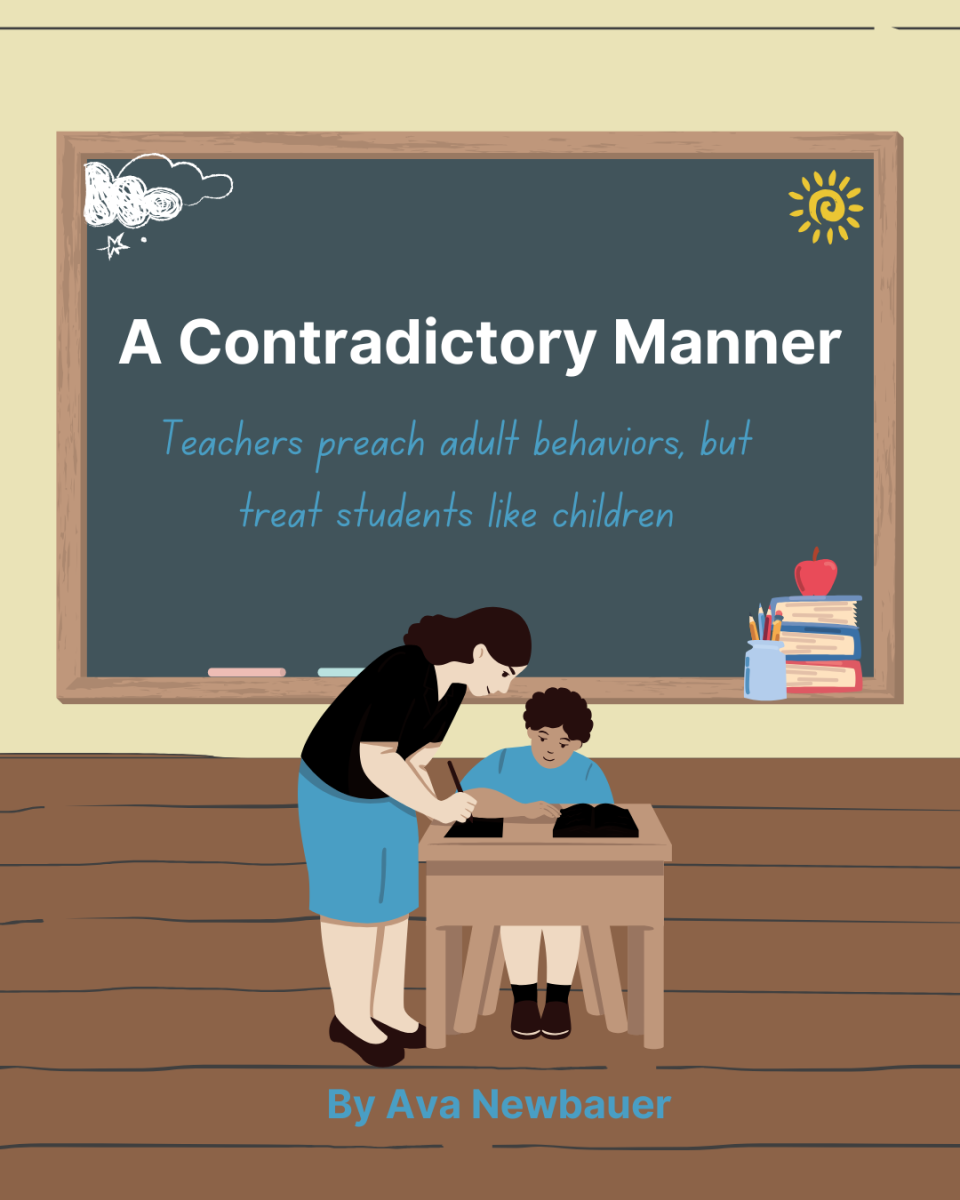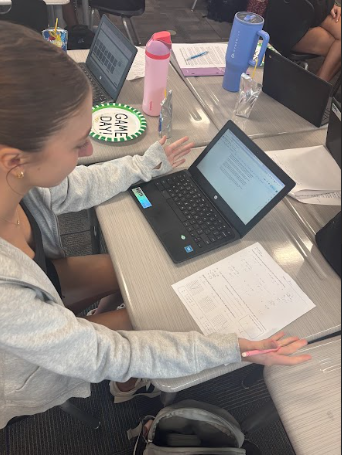High school is a time when students learn how to live, grow, and adapt in the real world. We are taught “life skills” and how to be responsible in the academic world, but does that translate to the real world.
When we are given a certain timeline to turn things in, or how to manage our time and turn things in on time correctly, it doesn’t show personal responsibility. This system sets us up for failure in the real world.
Students are told to be more responsible, but how are we supposed to know how to do that when things are continuously laid out for us, step by step?
Teachers often find themselves in a challenging position, trying to prepare students for the responsibilities of adulthood while simultaneously treating them with at a child’s level of care. This duty can create a confusing environment for students, who may feel the pressure to act maturely while being treated as if they still need supervision and direction.
“How are we supposed to be more responsible if they don’t trust us enough to let us be more independent and prove our responsibility?” sophomore Ashlyn Wellman said.
One of the main reasons teachers place this pressure on students is the belief that developing adult-like skills is crucial for future success. They encourage critical thinking, independence, and accountability, pushing students to take ownership of their learning and decisions.
This can often be shown in the form of strict deadlines, high expectations, and a focus on developing skills that are essential in the adult world, such as time management and effective communication.
“In our AP World class this year, our Amsco reading guides are due at the end of a unit, and our teachers don’t keep reminding us to do them,” sophomore Harry Marcley said. “ I feel like that makes me more responsible because I know I have to get it done on my own time.”
Teachers often emphasize the importance of responsibility in school, urging students to develop this vital trait for their future. However, there is a noticeable disconnect between their teachings and the way responsibility is enforced within the school environment.
“This is my freshman year, and my teachers remind us so much to turn our assignments in, and we have really strict deadlines,” freshman Reese Bryan said. “But the strictness on deadlines just makes me get it done, instead of learning it, because I have other stuff outside of school.”
The reliance on strict deadlines and rigid structures can create a conflict where students are told to be responsible, yet are not allowed to learn how to manage that responsibility effectively.
While these are important for ensuring that students stay on track with their work, they can also lead to a culture of compliance rather than genuine accountability.
Students may complete assignments on time out of fear of consequences rather than understanding the importance of managing their time and commitments.
The constant emphasis on deadlines can overthrow the learning process itself. When students are primarily focused on meeting deadlines, they may not take the time to reflect on their work or learn from their mistakes.
Without opportunities to practice self-regulation and decision-making, students may graduate without having fully grasped what it means to be responsible adults.
“Sometimes, we students feel so much pressure to meet the expectations of our teachers that we focus on what the teachers want us to do, and not on what will improve our student experience,” Wellman said.
A shift towards fostering a deeper understanding of responsibility, where students are encouraged to make choices and learn from their experiences, could lead to a more meaningful development of this essential trait.
Teachers insist it’s the students’ responsibility for their work to be done by themselves and on time, but don’t give them the freedom to do so. By teachers stepping back and putting the students in their own hands, they can decide their future themselves.










